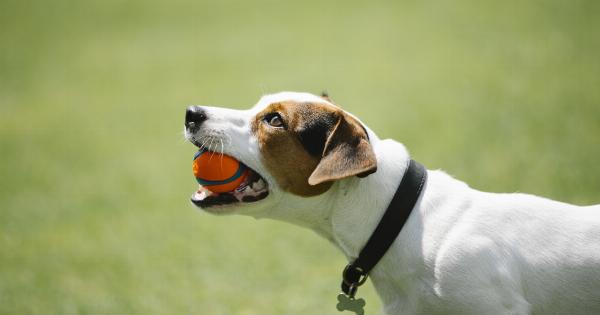It’s not uncommon for dogs to have bad breath, but if the odor is particularly strong or pungent, it may be a sign of an underlying health issue.
In this article, we will explore the reasons why your dog’s breath might smell and how to treat it.
What Causes Bad Breath in Dogs?
There are several reasons why your dog’s breath might smell bad. Here are some of the most common:.
Dental Issues
One of the most common reasons for bad breath in dogs is dental issues. Just like humans, dogs can develop plaque and tartar buildup on their teeth, leading to tooth decay, gingivitis, and other dental problems.
These issues can cause a strong odor to emanate from your dog’s mouth.
Digestive Problems
If your dog has gastrointestinal issues, it can result in bad breath. For example, if your dog has been eating something they shouldn’t, or they have a gastrointestinal infection, their breath may smell sour or acidic.
Kidney Disease
Kidney disease can also be a cause of bad breath in dogs. When the kidneys are not functioning correctly, toxins can build up in the bloodstream and cause a strong odor to emanate from the dog’s mouth.
Diabetes
Diabetes can cause a condition called ketoacidosis, which can cause bad breath in dogs. This occurs when the body breaks down fat instead of glucose for energy, and an excess of ketones can lead to a fruity smell in the dog’s breath.
How to Fix Bad Breath in Dogs
Here are some ways to fix bad breath in dogs:.
Dental Care
The first step to fixing bad breath in dogs is to improve their dental hygiene. Regular brushing of your dog’s teeth can help prevent plaque and tartar buildup and reduce the risk of tooth decay and gum disease.
Diet
Changing your dog’s diet can also help improve their breath. Feeding your dog high-quality food that is free from artificial preservatives and other additives can reduce the likelihood of gastrointestinal issues that can cause bad breath.
Visit the Vet
If your dog’s bad breath persists despite improving their dental care and diet, you should take them to the vet. They will be able to assess the underlying cause of the bad breath and recommend treatment options.
Conclusion
Bad breath is a common problem in dogs, but it can be a sign of a more serious health issue. By improving your dog’s dental hygiene and diet, you can reduce the risk of bad breath and improve their overall health.
If bad breath persists, visit the vet to determine the underlying cause.



























